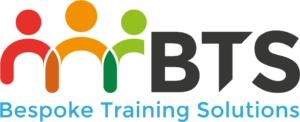Time can be at premium for us all, so if you are looking to attain R0 success in the shortest time frame possible, how should you go about it? Alex Langhorn, head of Business Support at Bespoke Training Solutions provides some tips on optimising your study performance.
 What is the quickest route to study for the R0 exams? This type of question drops into the BTS inbox on a regular basis, and it always sparks an interesting discussion. Having a goal to get through the R0 exams in as short a timescale as possible is not always a bad thing. Many of us would attest to be short on time, so the fastest route to qualification can be a valid consideration when setting out your study plan.
What is the quickest route to study for the R0 exams? This type of question drops into the BTS inbox on a regular basis, and it always sparks an interesting discussion. Having a goal to get through the R0 exams in as short a timescale as possible is not always a bad thing. Many of us would attest to be short on time, so the fastest route to qualification can be a valid consideration when setting out your study plan.
So, what can candidates in this position do to optimise their learning?
Learning styles
How a person learns best is a very individual thing. We all have personal preferences for the sorts of learning tools that we like to use. Most candidates sitting professional exams know from experience what works for them and what doesn’t. There are however some fundamental truths about how adults learn that can increase the effectiveness of the valuable hours invested in study. Knowing a bit about how you learn can also help you to select study resources that match your needs and avoid wasting money on those that don’t and are unlikely to work.
Learning takes time
Don’t be fooled by programs that promise to fast-track you through the exams. It is well known that the R0 exams are no walk in the park. The syllabi are broad and require candidates to not just know a lot but also be able to apply this knowledge effectively. The CII publishes recommended study hours for each R0 unit ranging from 50 hours for R03 to 100 hours for R06. You can’t expect to just read a study guide, retain the knowledge and pass the exam (you might be lucky, but it’s rare!).
An effective study plan builds in time for active learning experiences, regular review points and frequent opportunities to act on feedback.
Information overload is real
Candidates often first contact a training provider when they have hit a wall with their study, or had a go at an exam and come up short. After reading pages and pages of a dry textbook, they can feel deflated and demotivated if the knowledge doesn’t seem to be sticking. Information overload happens to the best of us, but there are strategies you can take to reduce the load.
Human concentration spans are short. Our brains need different sources of multimedia input to learn. One person might have a preference for visual learning material, whilst another person might prefer auditory material, but the best approach for any learner is usually to access a range of inputs. For example, words and images when combined in a meaningful way result in more effective learning than words alone. Look for study materials that use different ways to present the information; tables, graphics and imagery can all help to break the topic down into manageable pieces.
Improving memory
The mind needs to actively engage with the material to remember it. Turning what you are reading into an experience and actively responding to it improves the transfer of knowledge into the long-term memory stores.
So, whether you prefer visual, auditory, or tactile learning materials, the most effective way to secure your learning is to turn your study into an active experience.
Worked examples in study materials provide space for learning to become an active experience. Look for resources that walk-through sample questions and explain how to arrive at the correct answer by modelling how to apply the knowledge. Worked examples are like scaffolding or training-wheels to help you find your feet whilst your knowledge is developing.
As you begin to master the knowledge, specimen exam questions can be used to test yourself. Again, look for resources that provide a rationale for the correct answer so you can reflect on where you went wrong. Look for providers whose designers regularly sit the exams themselves, as that will be reflected in how ‘exam standard’ their questions are.
Final tips
Choose your resources carefully. Look for study support options that break complex subjects down into big ideas. Resources that use a range of media to add meaning to the material will help you to remember key points. Regular review points and feedback on your attempts will help you to identify the gaps in your knowledge.
Learning something new can be uncomfortable. Being aware of this from the outset can help you to develop coping strategies to deal with set-backs and keep you on the right track. Having a plan and some structure when working toward each R0 exam is also an absolute must.
About Bespoke Training Solutions
Bespoke Training Solutions (BTS) have been supporting regulated exams for 17 years, specialising in R0 support with outstanding candidate tracked results and feedback. Resources include digital and printed study guides, group and 1:1 training, e-Learning modules and a mobile app of practice exam questions. Visit www.bespoketrainingsolutions.com to learn more on how BTS can help you on your regulated journey.






























